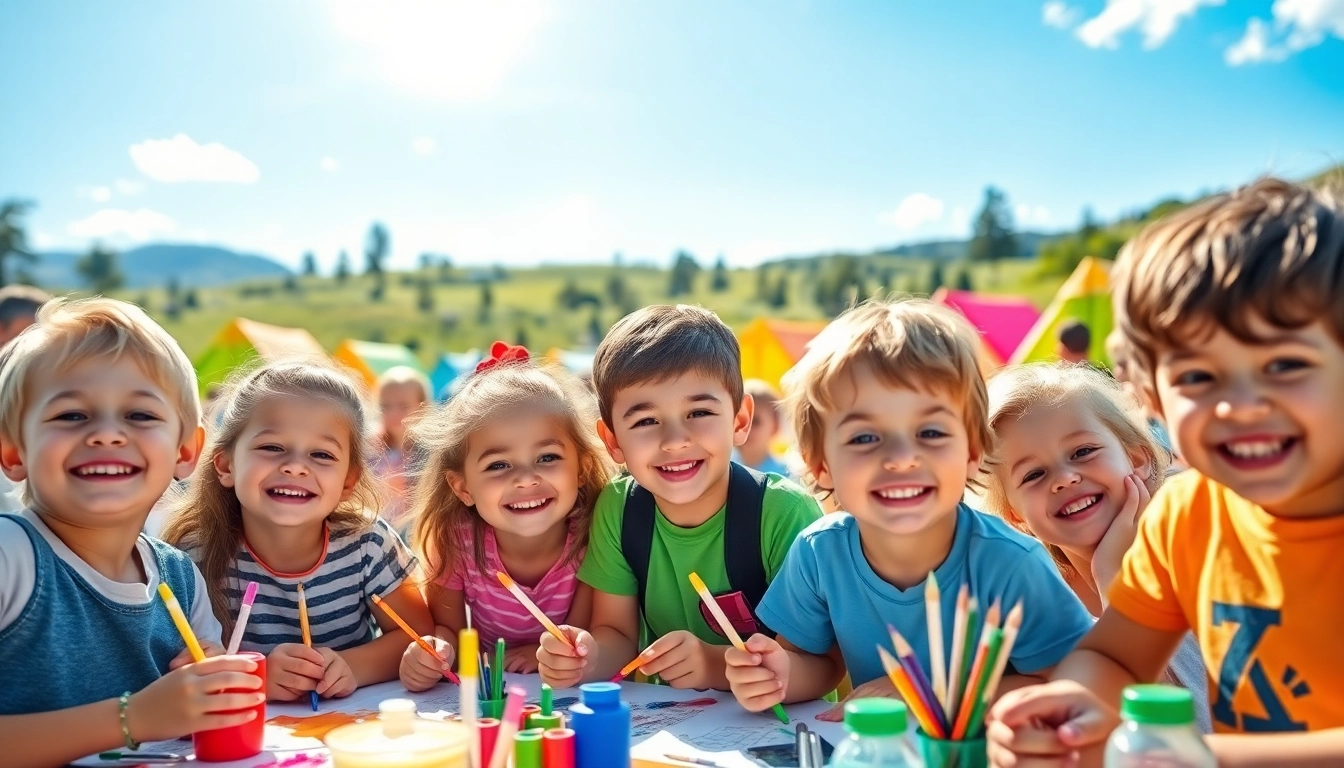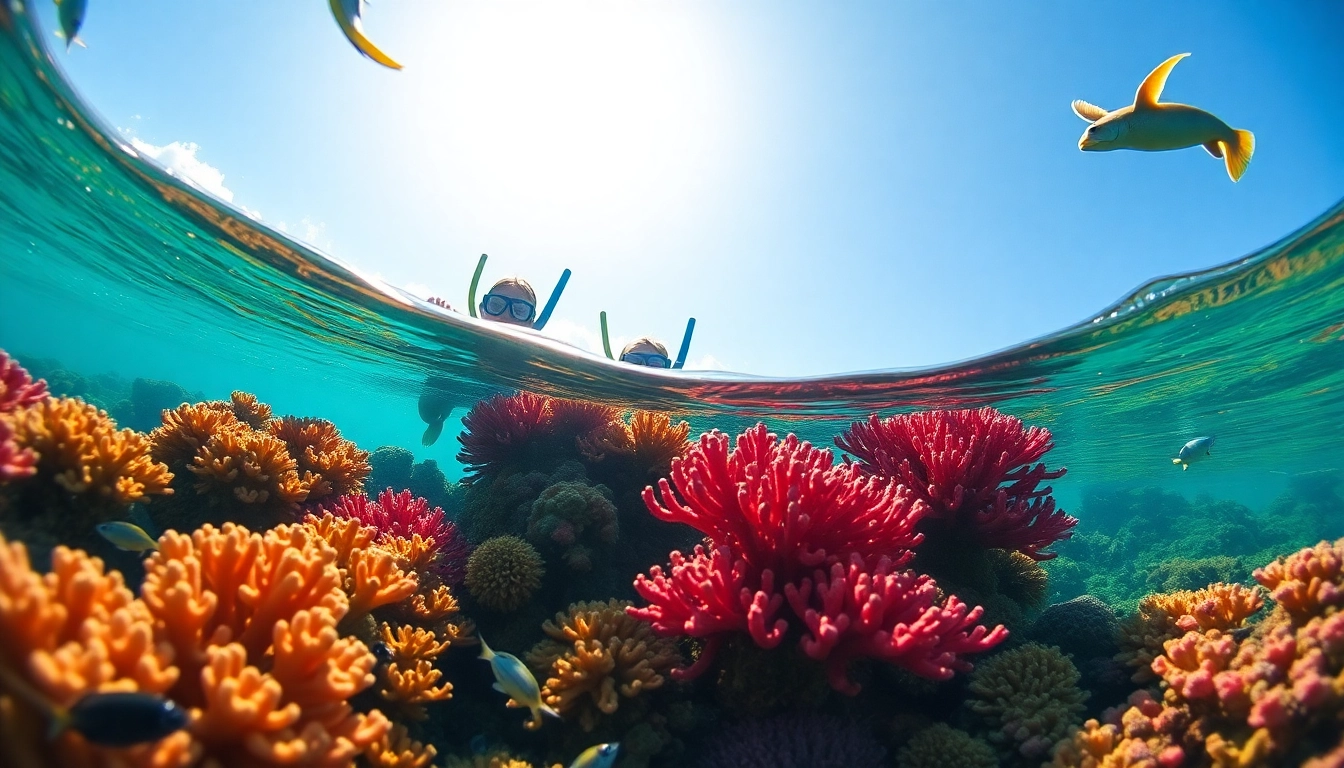Engage in Unforgettable Adventures at Holiday Camps: Activities, Benefits, and Tips
Understanding Holiday Camps: A Brief Overview
Holiday camps represent a unique opportunity for children and families to engage in immersive experiences that blend fun, learning, and growth. These camps offer a structured environment filled with various activities designed to promote social interaction, physical development, and life skills. As parents look for enriching opportunities during school breaks, understanding the value and options of holiday camps becomes crucial.
What Defines Holiday Camps?
Holiday camps are specialized programs designed primarily for children and teenagers, providing a setting where they can participate in engaging activities while being supervised by trained professionals. These camps can vary widely in their focus—some concentrate on sports, others on arts and crafts, while many include both alongside educational segments. The key feature is that they cater to different age groups and interest levels, ensuring that every child finds something they enjoy.
The History of Holiday Camps
The concept of holiday camps dates back to the early 20th century. Initially rooted in the United Kingdom, these camps were designed to provide working-class families affordable holidays away from home. The early camps offered recreational activities, but they have since evolved into diverse programs that cater to various interests, including outdoor adventures, arts, science, and more. Over the decades, holiday camps have adapted to the changing needs of children and families, incorporating technology, modern educational practices, and safety standards.
Different Types of Holiday Camps Available
Holiday camps can be broadly categorized into several types, each serving unique purposes and catering to different interests:
- Sports Camps: Focused primarily on athletics, these camps provide training and competition in various sports such as soccer, basketball, swimming, and gymnastics.
- Arts and Crafts Camps: Designed for creative minds, these camps include activities such as painting, sculpture, music, and performing arts.
- Nature Camps: Encouraging interaction with the natural world, these camps often involve hiking, wildlife observation, outdoor skills, and environmental education.
- Educational Camps: Aimed at enhancing knowledge in specific subjects, including science, technology, engineering, and mathematics (STEM).
- Adventure Camps: These camps integrate elements like rock climbing, kayaking, and team-building exercises, focusing on personal development and teamwork through adventure.
Benefits of Holiday Camps for Children
Participating in holiday camps can have multifaceted benefits for children, influencing their physical, social, and emotional development positively.
Enhancing Social Skills Through Group Activities
One of the most significant advantages of holiday camps is the opportunity they provide for children to enhance their social skills. Camps foster an environment of teamwork, collaboration, and communication as children work in groups to complete various activities. These interactions help children learn to express themselves, resolve conflicts, and build friendships with peers, promoting emotional intelligence and interpersonal skills.
Physical and Mental Growth Opportunities
Holiday camps are not only about fun but also play a crucial role in the physical development of children. Engaging in sports and outdoor activities helps improve physical fitness, coordination, and endurance. Mentally, challenges presented at camps encourage problem-solving, creativity, and critical thinking. These experiences prepare children for real-world scenarios, teaching them resilience and adaptability.
Cultivating Lifelong Memories and Friendships
Many children form lasting friendships and create unforgettable memories during their time at holiday camps. These experiences can lead to lifelong connections, as children share adventures, challenges, and fun moments. Furthermore, the soft skills and life lessons learned during these camps—such as teamwork, persistence, and creativity—serve them well into adulthood and impact their personal and professional relationships.
Choosing the Right Holiday Camp for Your Child
With an array of options available, selecting the right holiday camp for your child can seem overwhelming. However, with careful consideration, you can find a camp that aligns with your child’s interests and needs.
Key Factors to Consider When Selecting a Camp
When choosing a holiday camp, consider factors such as your child’s interests, the camp’s location, duration, and specialization. Assess the camp’s philosophy and daily structure—does it align with what you envision for your child? Also, look for camps that prioritize child-led activities, allowing kids to explore their interests while being guided by experienced staff.
Evaluating Safety and Quality Standards
Safety should always be a primary concern when selecting a holiday camp. Ensure the camp adheres to relevant safety standards and regulations. Inquire about staff qualifications, supervision ratios, emergency procedures, and health protocols. A camp that takes safety seriously will provide parents with peace of mind and children with a secure environment to engage in their activities.
Reviews and Recommendations from Other Parents
Parent reviews and recommendations are invaluable when evaluating holiday camps. Look for online testimonials, participate in community forums, and ask friends or family for their suggestions. Positive experiences from other parents can greatly help you gauge the quality of the camp, its facilities, and its staff. Trust your instincts and consider visiting the camp if possible, as firsthand impressions are often the most telling.
Exciting Activities Offered at Holiday Camps
Holiday camps are renowned for their diverse range of activities, all designed to enrich the campers’ experiences and encourage personal growth.
Arts, Crafts, and Creative Programs
Many holiday camps include dynamic creative programs that allow children to explore their artistic abilities. Activities may range from painting and sculpture to pottery and drama, enabling kids to express themselves while learning new skills. These programs foster creativity and innovation, encouraging kids to think outside the box and develop their unique styles and talents.
Sports and Physical Challenges at Camps
Sports activities at holiday camps not only promote fitness but also teamwork and competition. Camps often offer structured physical education devoted to sports such as soccer, basketball, swimming, and even non-traditional sports like ultimate frisbee or archery. These activities help children build discipline, enhance physical performance, and learn valuable lessons about winning and losing gracefully.
Nature and Adventure Experiences
Adventure activities, including hiking, kayaking, and climbing, are integral aspects of many holiday camps focused on outdoor education. These experiences not only connect children with nature but also teach important skills such as navigation, risk assessment, and environmental stewardship. Children learn to appreciate the outdoors while developing confidence in their physical abilities and capacities.
Tips for a Successful Holiday Camp Experience
To ensure your child enjoys a fulfilling and successful experience at holiday camp, consider the following tips:
Preparing Your Child for Camp Life
Communication is key when getting your child ready for camp. Discuss what they can expect, addressing any concerns they may have. Encourage your child to be open-minded and remind them that building new friendships and trying new activities will enrich their experience.
Ensuring Proper Gear and Supplies
Each camp will have its own list of required items, including clothing, gear, and personal supplies. Adhering to a packing list not only prepares your child for camp activities but also helps them feel more comfortable in an unfamiliar environment. Consider involving your child in the packing process to ensure they have everything they need for a successful camp experience.
Communicating with Camp Staff for a Smooth Experience
Establishing a connection with camp staff is beneficial. Before camp starts, consider reaching out to ask any questions or share specific needs about your child (such as allergies, special accommodations, etc.). Good communication with camp personnel helps create a supportive atmosphere where your child can thrive.












Post Comment